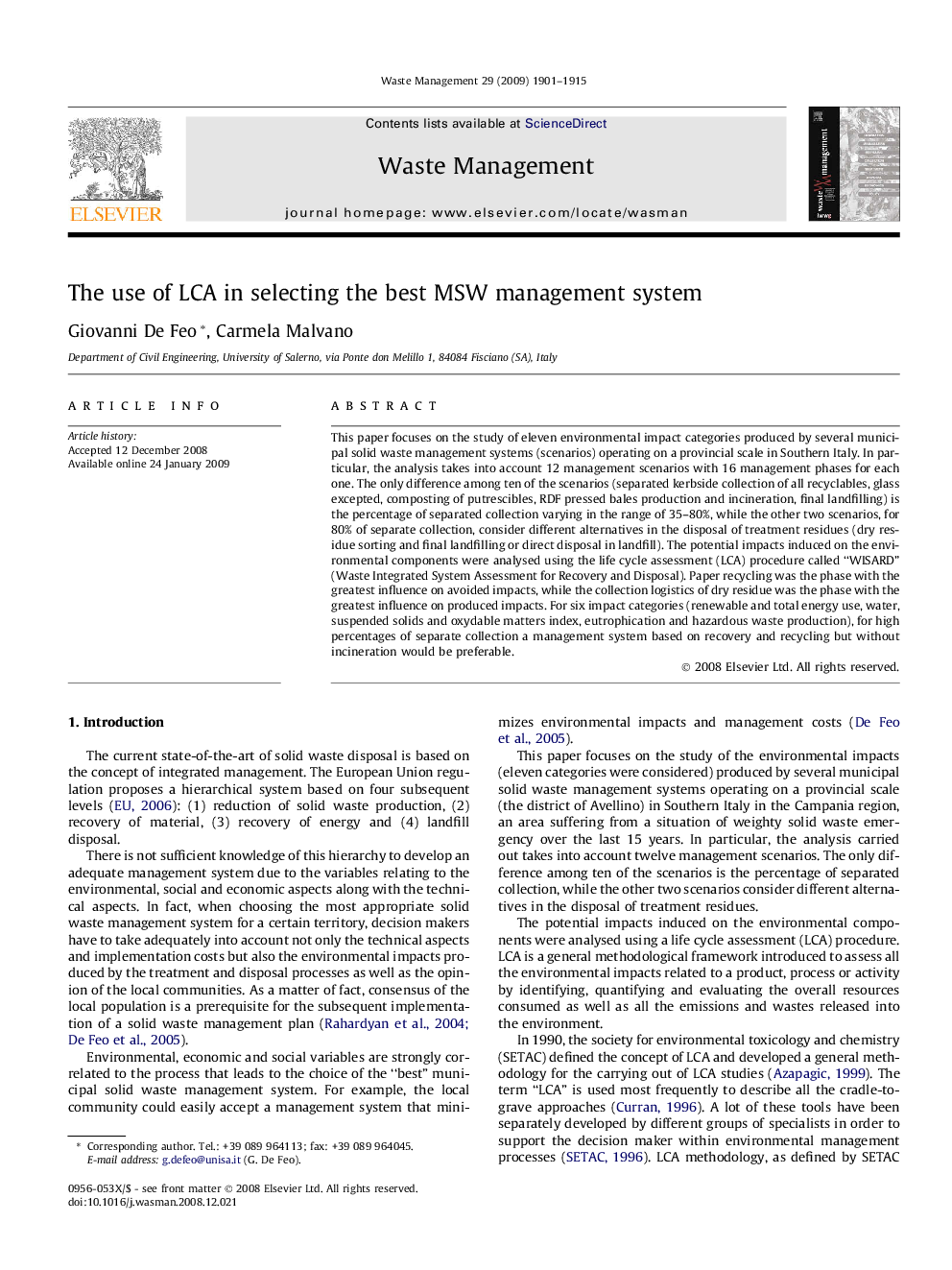| Article ID | Journal | Published Year | Pages | File Type |
|---|---|---|---|---|
| 4473331 | Waste Management | 2009 | 15 Pages |
This paper focuses on the study of eleven environmental impact categories produced by several municipal solid waste management systems (scenarios) operating on a provincial scale in Southern Italy. In particular, the analysis takes into account 12 management scenarios with 16 management phases for each one. The only difference among ten of the scenarios (separated kerbside collection of all recyclables, glass excepted, composting of putrescibles, RDF pressed bales production and incineration, final landfilling) is the percentage of separated collection varying in the range of 35–80%, while the other two scenarios, for 80% of separate collection, consider different alternatives in the disposal of treatment residues (dry residue sorting and final landfilling or direct disposal in landfill). The potential impacts induced on the environmental components were analysed using the life cycle assessment (LCA) procedure called “WISARD” (Waste Integrated System Assessment for Recovery and Disposal). Paper recycling was the phase with the greatest influence on avoided impacts, while the collection logistics of dry residue was the phase with the greatest influence on produced impacts. For six impact categories (renewable and total energy use, water, suspended solids and oxydable matters index, eutrophication and hazardous waste production), for high percentages of separate collection a management system based on recovery and recycling but without incineration would be preferable.
